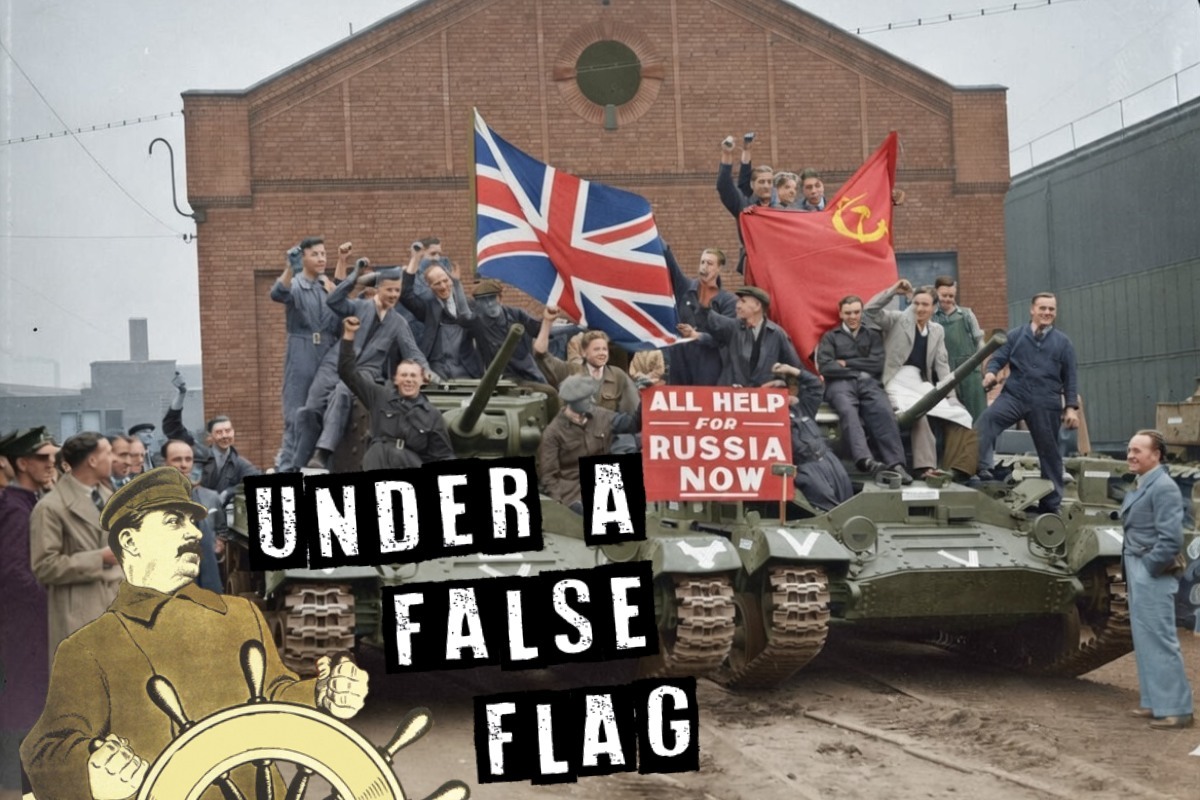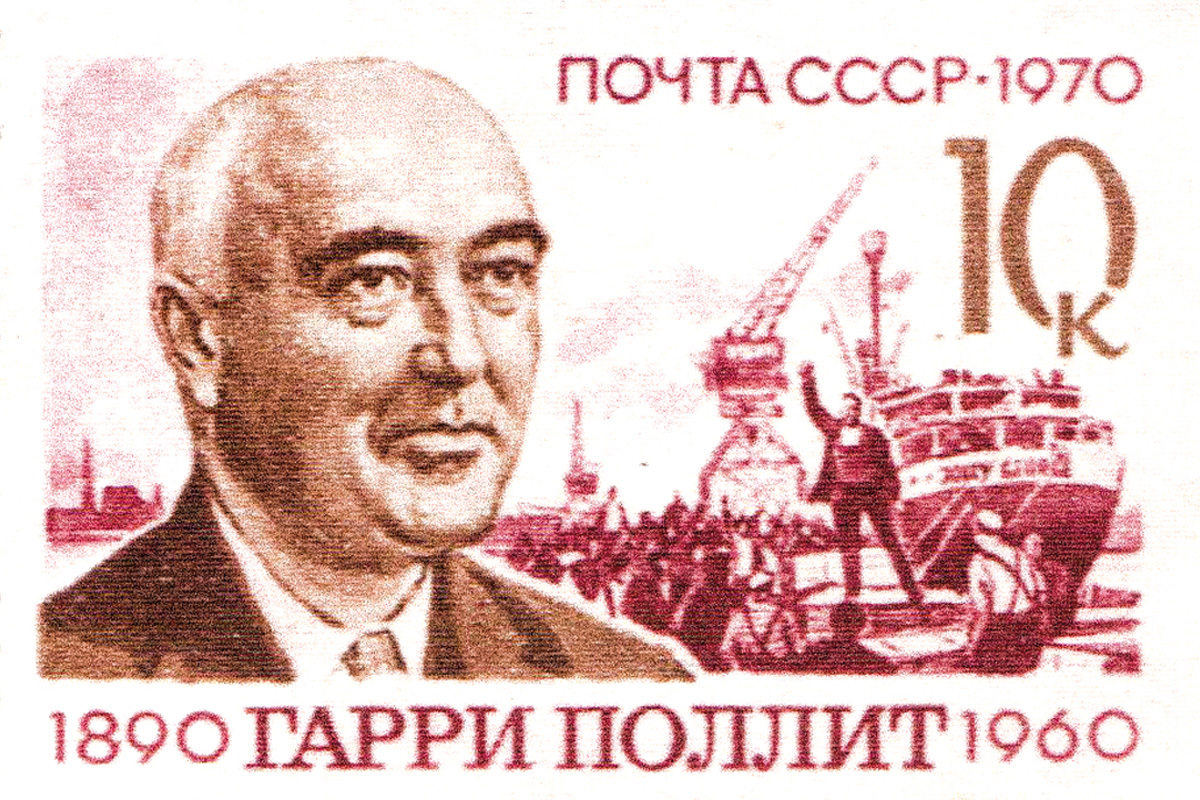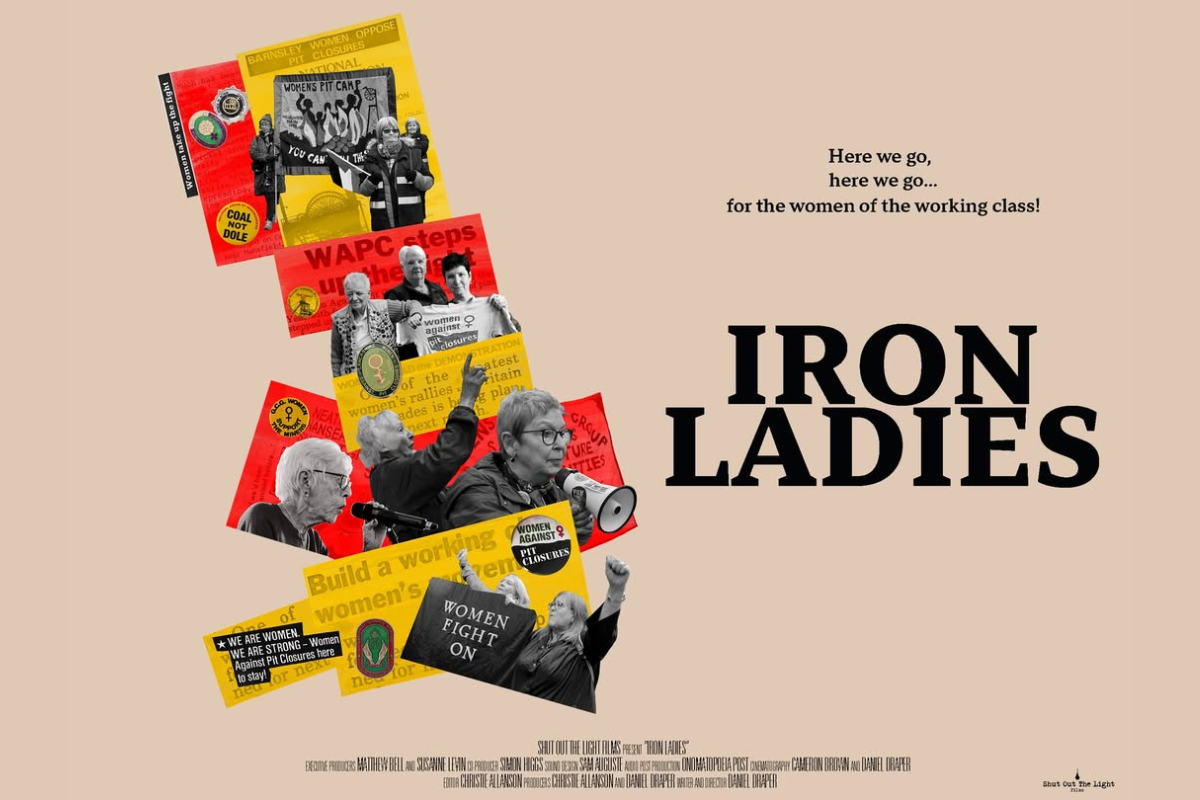We publish here a personal recollection of the Great Miners’ Strike of 1984-85 by Dave Platts, a construction worker from Rotherham and Socialist Appeal supporter, who was working at the Drax B power station 30 years ago at the time of the strike. Dave recalls the heroic struggle of the miners and the profound impact that it had on his political consciousness and on the lives of many others.
We publish here a personal recollection of the Great Miners’ Strike of 1984-85 by Dave Platts, a construction worker from Rotherham and Socialist Appeal supporter, who was working at the Drax B power station 30 years ago at the time of the strike. Dave recalls the heroic struggle of the miners and the profound impact that it had on his political consciousness and on the lives of many others.
I was a shop steward on the Drax B power station construction site when the miner’s strike broke out and the events that I experienced and witnessed during that year long struggle 30 years ago are seared in my consciousness forever.
Our new building site was separated from the “live” part of the existing power station by a barrier both inside the boiler house and outside across the new site; but as the strike started the barrier was opened to allow lorry loads of coal to cross the new works and on to the huge stockpiles of coal that had been built up. I tried to stop one of the lorries to ask the driver where the coal was from and to convince the driver that this was a “closed shop” and he ought to turn around, but these men were a hard core of scabs, hired especially for breaking the strike. He put his foot down hard and I had to be quick to get out of the way.
I got round the site pronto and called a meeting of the back shift (we worked two shifts) to discuss the CEGB’s (as it was then) tactics of running coal across our site. Many of the lads on the job were from Nottinghamshire (and that area was still working and demanding a vote) and there was still confusion about the merits of the strike; it was early days, and I don’t mind admitting, but I got slaughtered good and proper. As downtrodden as I felt, plenty of the men came up to me after the meeting and offered both their sympathy and support for my impatient, misjudged enthusiasm for action.
I managed to contact the NUM about the lorries bringing coal in, and they put a picket on the gates. The lorries were stopped!
Solidarity
I had been politicised in the early Thatcher years – out of work like most others in my field of steel construction work – and I joined the “Militant” when I learned of their [the Militant Editorial Board’s] expulsion from the Labour Party. I sold the paper on the site and built up a decent sale: 120 was my record. I also learned that to keep the lads informed was always the best way to do things. With the “Militant”, the NUM’s paper, The Miner, and as much info as myself and the other three stewards who worked with could pin up on the notice board, we managed to educate the workforce in matters related to the strike: the governments lies; the absolute distortion of the truth by the media; and the role of the police and the state. We organised a decent weekly collection for the striking miners and collected £28,000 in the twelve months the strike lasted.
We used to take bacon sandwiches, tea and cigarettes, to the pickets every morning. Nothing came through our gate without the stewards say so. The gatehouse used to ring me up to speak to the pickets if there was a doubt about letting a load in. It worked very well.
Our manager called all four of us into the office during the first few days, and told us that the tea and sarnies had to stop. I told him that I might not be in a position yet with our cabin, but I could call on my brothers on the gate to stop all our deliveries if he wanted to make an issue out of it. The tea and sarnies carried on.
The strike saw its first fatality early on. David Jones had been murdered, hit in the chest by a brick outside Ollerton Colliery, in Nottinghamshire. He sadly died of his injuries, leaving a young family behind. No one was charged! All four of our stewards went to the funeral in South Kirby, which was attended by thousands. It was a sombre affair but with the usual working class celebration of a life passed. Everyone started in the pub and then joined the cortege on its procession to the graveyard. On its way there, the typical mourners were in need of the toilet. Hundreds of desperately bloated drinkers were welcomed into complete strangers’ houses to use the loo. It was an episode not lost on one of our stewards who was from an affluent area in Beverley, North Yorks. He had never seen such poverty as that which he witnessed in the home he entered to use the toilet – “they had got nothing” he observed – but yet he was overwhelmed with the kindness of the people who offered him his relief.
Orgreave
As the strike went on, the mass Orgreave picket was planned, so I took a week’s holiday to support my comrades in what was turning out to be a fight to the end. A class war in all but name!
I arrived at the picket line that lovely sunny morning at the bottom of the lane – the wrong end as it turned out – the main support was at the top end of the gate. I was walking along, when this mounted policeman, on the biggest horse I had ever seen, spurred his steed with his heels and drove me up against this huge brick wall. I was as much bewildered by his action as scared. But it became apparent that he was deliberately trying to squeeze me, with the horse, against the wall. Only the horse’s big head prevented it doing me damage. All the pickets from the bottom end were forced into a walled field where we were neutralised.
We could see the big push at the top end, but the pickets were completely outnumbered by the thousands of ordinary uniformed police. Then I could see the riot squad, then the mounted police, then the dog handlers, and all this lot was being overseen by cameras on the roof of a building across from the main gate to the coking plant that was Orgreave. It was clearly something rather different!
The line pushed and heaved. Then there was this almighty racket. The riot squad, never used in Britain before, were banging their batons on their riot shields creating a scene straight from the film “Zulu”. It was a frightening sight as the other officers moved out of the way to let the riot squad take up the front line and push the pickets back. I think it was then that the scab lorries arrived to be loaded with coke. The workers in the plant came out of the works whilst they were being loaded and went back in again when they had gone, as a token protest. At the same time, the pickets were being chased by mounted police across fields and hit indiscriminately over their heads with batons and arrested. There was blood everywhere!
The next day saw me at the top end of the gate and with the main body of pickets. I was at the front of the pushing picket line when the police line seemed to break. It was a pre-planned tactic by the police, designed to allow a few pickets through a gap, then quickly closing it again with heavy back up. The lads that “broke through” were then beaten up and arrested. I was on my knees at the other side of the police line – I was put off balance by the break – when I saw this huge black leather gloved fist coming toward my face. I managed to keep focussed and ducked the blow. On my hands and feet now, I somehow scrambled between the legs of the police line and then ran for cover back to our ranks. One of the lads said, in our distinctive Yorkshire accent, “tha or reight kid, tha clear”. I felt like a scared rabbit! Events after that were much the same as the day before.
Next day saw the early morning arrest of Scargill, and I decided to go back into Rotherham town, where I live, to see the court proceedings. Scargill was bailed. The picket that day saw the worst of the state brutality. Anyone there was fair game for the police. Onlookers, photographers, and the elderly unfit miners were clubbed unmercifully and arrested for rioting.
Drax B
Back at Drax after Orgreave, work started on a pipeline along the road onto the site by another company. After investigation, it was discovered that it was an oil pipeline linking the huge new boilers to the canal docks. It was also discovered that the power station could be run on just oil as well as coal. We got hold of the company steward and informed him of our concern to the strike. We held a site shop-stewards’ meeting, and it was resolved that he would go to his members and stop the work. He was told by his management, that if the work was stopped, the men hired to build the pipeline would be sacked. And so they were sacked – out of spite! It was a tough call for the steward, but it had to be.
In order to keep the strike fund going, I had an idea that I would bring a striking miner onto site to address our cabin; the other stewards agreed. The management got wind of our plan and told us that it couldn’t be allowed. Security was tightened on site as our meeting day arrived. I drove my car out of the gate to the arranged pick up of Davy Miller, a NUM union official at Kellingley Pit. He hid in the back of the car and I drove back on site with the backshift – who were coming in early for the meeting – for cover. As I approached the gate house, I put my foot down and sped past security. I then took Davy – a Scottish exile – up the lift to our canteen where we held our monthly “grouse” meetings. With sound equipment ready (it was a big cabin), Davy let it rip.
In that inimitable Scottish style, Davy explained the hardships the miners were enduring, the police harassment, the way collected funds were being used to feed families who were skint, and the baby food they bought for young mothers. There were a few tough men with damp eyes I can tell you. It was a brilliant speech from Davy. We had a few thousand quid in a shop stewards fund; that, and an increased collection, was the resulting donation to the strike fund.
If the call for supportive strike action had been called by the NUM, above the whimpering heads of the TUC, at that stage, I believe, we, at Drax B construction site, and elsewhere, would have got our members out.
Decline and defeat
The first cracks in the strike started, in my view, when the Libya – Roger Windsor (M15) – propaganda hit the headlines. Edited film of Windsor kissing Gaddafi’s hand in a supposedly NUM-conspired money raising episode had its effect on strikers who had been out the gate a long time. Lads on site were coming to me with tales of woe from their pit villages. But still the strike went on.
It was a very traumatic period for me, watching the strike gradually weaken, and when it was called off I was devastated. The mood on Drax was depressing. Anger at the so-called leaders of the trade union and labour movement was palpable. They never lifted a finger to support. They were well rewarded for their treachery by the state.
The return to work was to be an act of orderly defiance; and so it turned out to be. I had the day off work to march back to work with the working class heroes that they had proven to be. Silverwood was my local pit: my grandfather, my father, uncles, my wife’s father, and many of my friends had worked or were working there. The march back was routed through the local village, Thrybergh, and then up the lane to the pit.
We assembled on the main street; traffic stopped. Friends, who I had known from school, came up to me and shook my hand, saying, thanks for coming – I wouldn’t have missed it for the world! With the pit banner, carried by the union officials at the front, the march moved off.
It seemed like all the estate was out to support the union. Women, many of whom had been involved with the “Women Against Pit Closures”, joined the march. Men and women lined the street. Children waved to granddad as he passed by, then, looked up to their weeping mothers, their young minds trying to make sense of it all. Some looked out of open windows, old retired miners stood at their gates, and all clapped and cheered their men-folk as they marched back to the colliery. Some joined the march on route. I have never felt so attached to my class. I am not best known for being able to hold in my emotions; I cried uncontrollably all the way to the pit.
Three decades later: lessons of the strike
30 years on and with life’s curious twists and turns, I find myself working at the last pit in Nottinghamshire, Thoresby. There is no canteen, that’s gone. The word is that the pit is going to close – it’s not profitable, it only has a 24 inch seam of coal, and the mood of the workers is defeatist. I have spoken about the strike to a few that worked through the dispute (it was a scab pit), and they reluctantly admit their mistake in not backing the NUM. On the skyline in the distance you can see two pit-head stocks. They belonged to another local pit called Clipstone, a pit I have also worked at – as a steelworker I might add.
The pit was the lifeblood of the village. People, not at work, used to call in to the pit canteen to have good cheap meals or buy things over the counter. Kids on their way to school would call in and buy sweeties. The village is a shadow of its former self. The villagers voted, in a local council run poll, to leave the pit-head stocks standing rather than demolish them, as a reminder of the good old days – a monument to the pit’s role in supporting the village life that has now gone forever. The Nottinghamshire miners who worked through the strike 30 years ago must hang their heads in shame as they go past. And they wanted a vote whether to defend their communities!
One of the lessons that the strike taught me, and the people involved with it, was the power of the state: just who it represented, and the unlawful boundaries it would cross. The miners had pitched against them: the police, the television, the press, the courts, parliament, the secret services; and the most offensive reality that came to light during the dispute, was that the people who were supposed to be on our side had been bought off – traitors to our class.
But the most important lesson of all for me, and the most inspiring, was the capacity of the working class to fight given leadership. I feel so proud to have played a small role, but yet so humble when I remember what those brave strikers, and their families, went through – giants of the class struggle, and they weren’t even aware of it! Against all the odds they hung out for 12 months. For the people who say our class won’t struggle, I say study the rich history of the Great Miners’ Strike, 1984-85.






